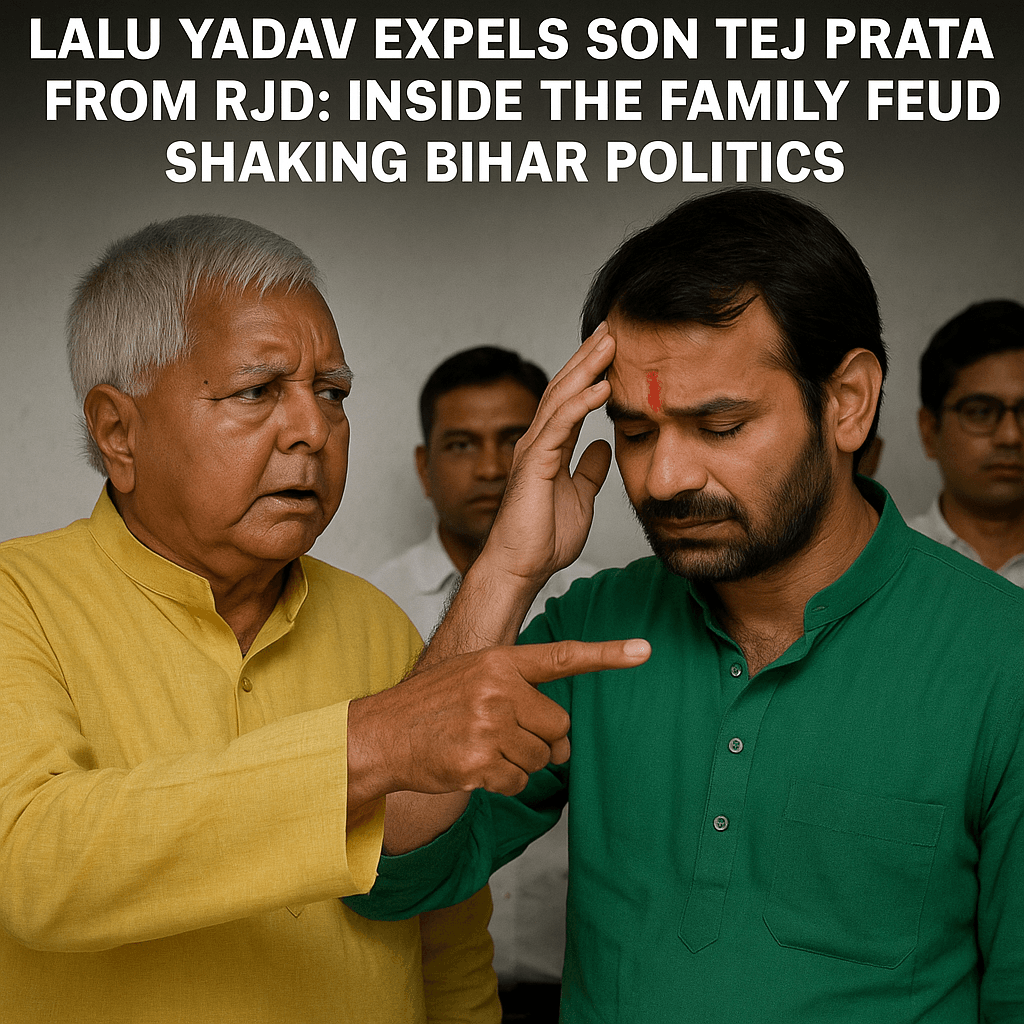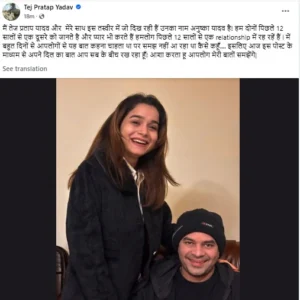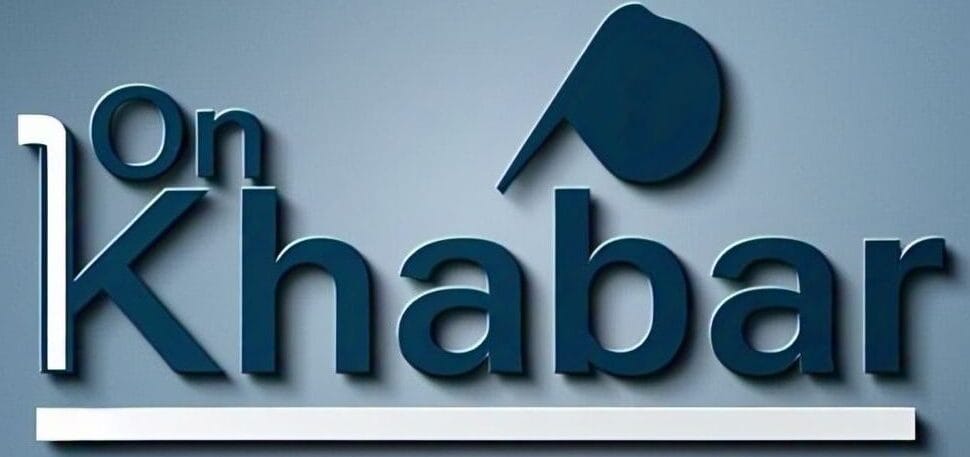
In a dramatic turn of events, Rashtriya Janata Dal (RJD) patriarch Lalu Prasad Yadav expelled his eldest son, Tej Pratap Yadav, from the party and family for six years, citing “irresponsible conduct” and a breach of family values. The decision, announced via social media on Sunday, follows a viral Facebook post allegedly authored by Tej Pratap that claimed a 12-year relationship with a woman named Anushka Yadav. The controversy has ignited debates about morality in politics, familial loyalty, and its implications for the upcoming Bihar Assembly elections. Here’s a deep dive into the saga rocking one of Bihar’s most influential political dynasties.

The Expulsion: Lalu’s Stern Stand on “Family Values”
Lalu Yadav’s expulsion order was unequivocal. In a Hindi post, the former Bihar Chief Minister stated that Tej Pratap’s actions had “weakened the party’s collective struggle for social justice” and strayed from the family’s traditions. Emphasizing the importance of public decorum, Lalu declared his son barred from all party and family roles until 2029.

The move underscores Lalu’s attempt to project discipline within the RJD, a party built on socialist ideals and backward-class empowerment. However, critics argue the timing—months before Bihar’s elections—reeks of damage control. Tej Pratap, a former minister, has long been a polarizing figure, but his expulsion marks the first public rift in the Yadav family’s tightly controlled political narrative.
The Viral Post: Love, Hacking Claims, and Backlash
The controversy began when a since-deleted Facebook post on Tej Pratap’s account claimed he had been in a relationship with Anushka Yadav for over a decade. The post, which included photos, sparked immediate speculation about his personal life, especially given his tumultuous marriage history.
Tej Pratap swiftly denied authorship, alleging his account was hacked and the images “edited to defame me and my family.” However, the damage was done. Supporters praised his “courage,” while others questioned the authenticity of his defense. The incident revived scrutiny of his 2018 divorce from Aishwarya Rai, granddaughter of ex-CM Daroga Rai, which ended in bitter accusations of mistreatment.

Tejashwi’s Diplomatic Response: “Keep Personal Life Separate”
Tej Pratap’s younger brother, Tejashwi Yadav—the RJD’s de facto leader—struck a cautious tone. Speaking to media in Patna, he emphasized, “Personal life should be separate from politics,” while deferring to Lalu’s decision. His response highlights the delicate balance the Yadavs must strike: addressing the scandal without alienating their voter base, which includes conservative rural communities.
Tejashwi’s rise as Lalu’s political heir has often overshadowed Tej Pratap’s erratic career. With Tejashwi now leading the RJD’s charge in Bihar, the expulsion may consolidate his position, albeit at the cost of family unity.
JDU’s Criticism: “Eyewash Ahead of Elections”
The ruling Janata Dal (United) wasted no time capitalizing on the turmoil. Party spokesperson Rajiv Ranjan dismissed Lalu’s move as a pre-election stunt, asking why the RJD patron’s “conscience didn’t awaken” during Tej Pratap’s divorce saga. He accused the Yadavs of hypocrisy, citing Aishwarya’s allegations of mistreatment and her father Chandrika Roy’s exit from the RJD in protest.
The JDU’s attack underscores the high stakes for Bihar’s political landscape. With the Mahagathbandhan (Grand Alliance) seeking to unseat Nitish Kumar, the RJD can ill afford internal discord.
Tej Pratap’s Troubled Personal Life: A Liability for the RJD?
Tej Pratap’s personal life has long been a lightning rod for controversy. His six-month marriage to Aishwarya Rai in 2018 collapsed amid allegations of emotional abuse and dowry demands. Aishwarya’s father, Chandrika Roy, resigned from the RJD, vowing to fight “politically and legally.” The divorce case remains unresolved, casting a shadow over Tej Pratap’s political credibility.
The latest scandal reinforces perceptions of him as a liability. Once seen as Lalu’s successor, Tej Pratap’s influence has waned, with Tejashwi emerging as the family’s political face. His expulsion may signal the RJD’s attempt to shed baggage ahead of polls.
Election Implications: Can the RJD Recover?
Tej Pratap’s expulsion comes as the RJD prepares for a high-stakes battle in the Bihar Assembly elections. The party plans to field him from Mahua, a seat he won in 2015 but lost in 2020. His removal could disrupt campaign strategies, forcing the RJD to recalibrate its approach in Vaishali and beyond.
However, Lalu’s decisive action might also appeal to voters weary of dynastic entitlement. By penalizing his son, he positions the RJD as a party prioritizing ethics over nepotism—a narrative that could resonate in a state plagued by corruption scandals.
Conclusion: Morality vs. Politics in the Yadav Dynasty
The Tej Pratap saga reveals the tightrope Indian political families walk between personal conduct and public image. For the RJD, the expulsion is both a crisis and an opportunity: a chance to reaffirm its commitment to social justice while distancing itself from a tarnished figure.
Yet, questions linger. Was Lalu’s decision driven by genuine outrage or electoral pragmatism? Can Tej Pratap reinvent himself post-expulsion? And will Bihar’s voters forgive the Yadavs’ familial discord? As the state gears up for polls, the answers could reshape its political future.
Engage with Us
What’s your take? Should politicians’ personal lives influence their careers? Share your thoughts in the comments!










Good
THANKS